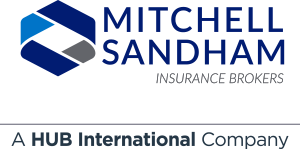Systemic Loss
Here is some new press that should be viewed as a great reminder of risk of systemic loss in any industry. It is also a great example of an accepted practice being judged in hindsight as unacceptable.
MetLife Settlement Near $500 million, here. This is the CBSNEW.com version, but there are many others available.
As far as I can tell, Life and Benefits insurance companies were using the Social Security Administration’s “Death Master” file database to verify the death of its clients to determine when to stop paying annuity benefits. This sounds like a reasonable thing to me. Dead people cannot tell the insurer to stop their benefit payments, and many live people who have been successfully cashing these cheques will not be quick to tell an insurer to stop making the payments. But, a 2007 multistate examination suggested that the insurers should be obligated to also use this database to help determine when they should be paying-out claims under life insurance policies.
I admit that my observations are conflicted by the fact I have spent the last 15 years in the insurance industry, but, even from the position of a policy-holding client, I have never expected my insurer to follow-up with me to see if they owe me money. They don’t call me to see if I have been in an accident and want them to fix my car. And, since my life insurance policy says that my beneficiary needs to contact the insurance company and provide an official original death certificate in order to collect on my life insurance policy, I don’t expect the insurer to continuously call my wife to find out if I have died. In fact, I would rather they didn’t give her any ideas. If I have not communicated to anyone that I have a life insurance policy, and if I have lost, hid or destroyed all of my policy documents, then I don’t expect my beneficiaries to get paid. Kind of a waste, but ultimately it is my own fault.
However, in my case, there is a good chance my beneficiaries would receive the proceeds of my life insurance policy, even if I have neglected to tell them it existed and also lost the paperwork. My insurance broker is independent and has no vested interest in the policy not being paid. I also see him fairly regularly, and he knows my wife. Therefore, he will have the easiest condolence call of all my contacts…. “hi Casey, I am so sorry for your loss………….. but here is a (reasonably) large cheque.” That is just a shameless plug for people to use an experienced and truly independent insurance broker for all of their insurance needs.
The “Death Master” case has many other ramifications. One of the articles mentioned that Florida Insurance Commissioner Kevin McCarty said there were eight ongoing investigations that cover 92% of the marketplace. Such a systemic activity can be expected when the average person would likely do the same thing if they were in the same position as the insurance company. I am sure the Death Master file was not the only research done when the insurers stopped their annuity payments. And insurance companies should not be expected to issue claims cheques based solely on someone being included on the list. In many cases the policy holders had changed addresses, without notifying their insurer, long before they died. I am also guessing that this practice has been ongoing for many years with the full knowledge of insurance regulators.
Another issue is the sheer size reach of the potential settlements. A special mention in the MetLife case that the large policy values of the unpaid claims were “properly reserved” and to be paid over 17 years, would suggest they are material to an insurance company’s financials. This could arguably mean future changes in operating procedures, reserving practices and pricing strategies.
Finally, any issue that has major press, large values and hindsight adjudication, usually means a feeding frenzy within the E&O and D&O litigation plaintiff bar.
The key to systemic risk is that is it difficult to insurer after the dirty laundry has been hung out to dry. So the most important move is to protect your options under current corporate insurance program by understanding the opportunities and obligations regarding NOTICE under those polices and in any renewal or new insurance applications. Don’t wait until your next policy renewal. If you don’t have insurance in place for the next systemic event, consider it, and at a minimum document the effort.
Greg Shields is a D&O, Professional Liability and Crime insurance specialist and a Partner at the University and Dundas (Toronto) branch of Mitchell Sandham Insurance Services. He can be reached at gshields@mitchellsandham.com, 416 862-5626, or Skype at risk.first. And more details of risk and loss control can be found on the Mitchell Sandham blog at https://mitchellsandham.com/
CAUTION: This article does not constitute a legal opinion or insurance advice and must not be construed as such. It is important to always consult a registered and truly independent insurance broker and a lawyer who is a member of the Bar or Law Society of the relevant jurisdiction with regard to this material before making any insurance or legal decisions. All material is copyrighted by Mitchell Sandham Inc. and may not be reproduced in any form for commercial purposes without the express written consent of Mitchell Sandham Inc. Anyone seeking to link this document from any external website must receive the consent of Mitchell Sandham Inc. by sending an e-mail to gshields@mitchellsandham.com.


